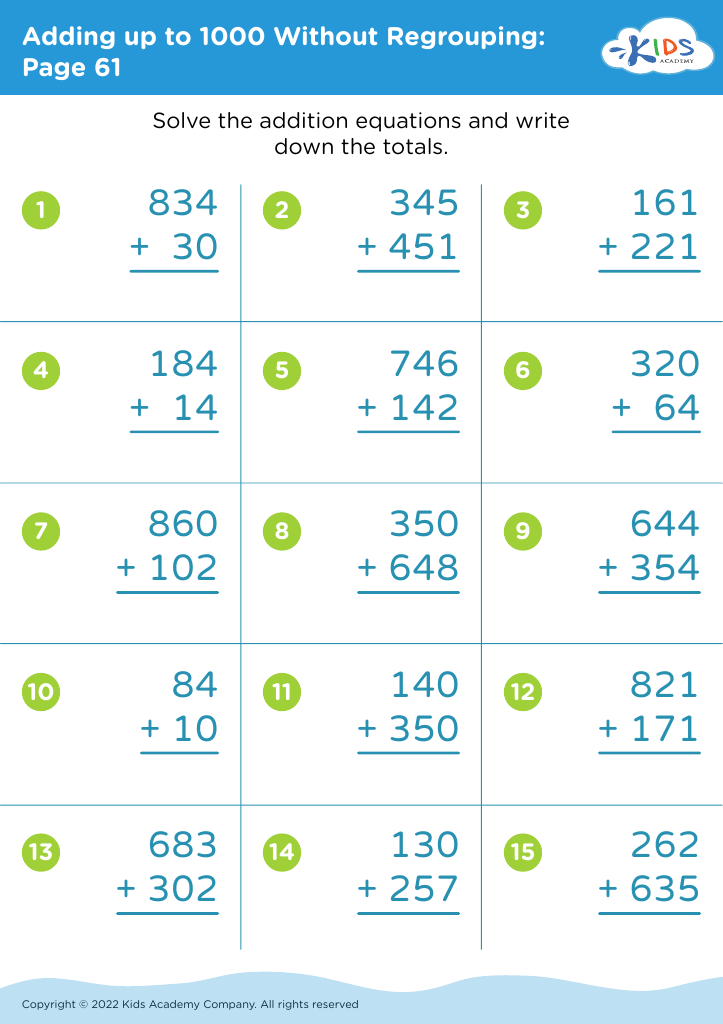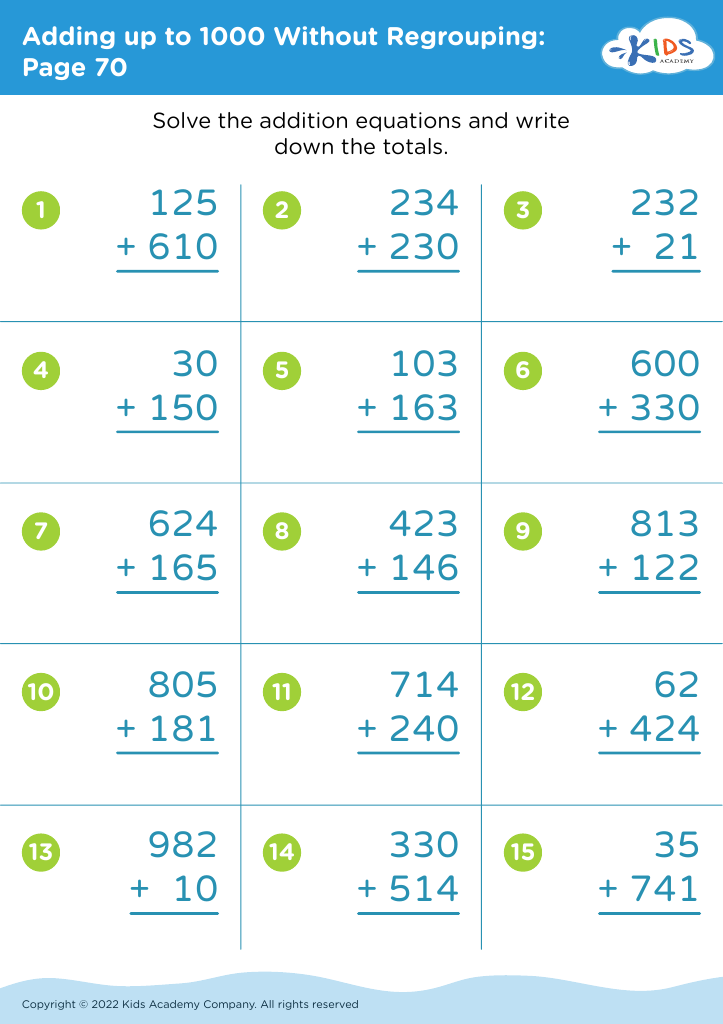Basic Addition Adding up to 1000 Without Regrouping Worksheets for Ages 5-7
4 filtered results
-
From - To
Introduce your young learners to basic addition with our engaging worksheets designed for ages 5-7. These carefully crafted printables focus on adding up to 1000 without the complexity of regrouping, making it easier for beginners to grasp the fundamentals of arithmetic. Children will strengthen their math skills while building confidence through fun exercises, vibrant visuals, and a variety of problem formats. Perfect for classroom practice or at-home learning, these worksheets support early math education in an enjoyable and effective way. Watch your child's number sense blossom as they master basic addition with these accessible and educational tools. Let's add to their success!
Parents and teachers should care about teaching basic addition up to 1000 without regrouping for ages 5-7 as it lays a fundamental mathematical foundation. In this developmental stage, children are like sponges, keen to absorb new information. Introducing them to larger numbers strengthens their number sense, allowing them to better understand concepts like place value and the fundamentals of arithmetic operations. Successfully mastering addition within this range boosts children's confidence and fosters a positive relationship with math early on.
Moreover, addition up to 1000 encourages cognitive development. It improves memory skills, as children need to remember sequences and processes, and enhances logical thinking, as they learn to solve problems systematically. By practicing addition without regrouping, children are trained to see patterns and relationships between numbers, a critical skill in higher-level math.
Additionally, competence in these basic operations is essential for daily life. Whether it’s counting money, measuring ingredients for a recipe, or calculating time, basic addition is a versatile and practical skill. Early mastery can also alleviate future frustrations and difficulties in more advanced mathematical endeavors. Thus, investing time and effort in mastering basic addition up to 1000 at a young age sets children on a path to academic success and functional adulthood.














